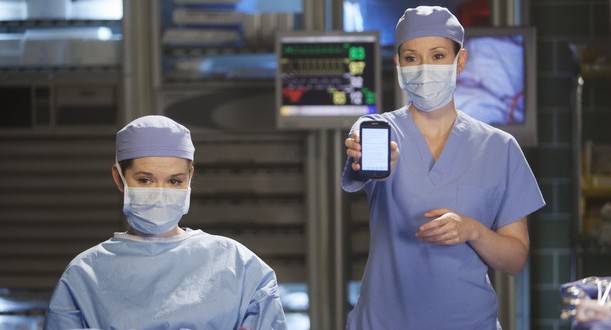Phone-related distraction listed among top 10 patient safety risks
Cell phone use is not generally restricted in operating rooms (ORs), but some experts say the time for rules has come, according to a report from Kaiser Health News. In interviews, many described coworkers’ texting friends and relatives from the surgical suite. Some spoke of colleagues who hide a phone in a drawer and check it when they think no one is watching.
“Sometimes it’s just stuff like shopping online or checking Facebook,” said Dr. Dwight Burney, an orthopedic surgeon in Albuquerque, New Mexico. “The problem is that it does lead to distraction.” This can result in medical errors or lax safety procedures, such as forgetting to check a patient’s identity, he said.
In a 2011 incident, a Texas anesthesiologist was accused of sending text messages and e-mails while monitoring a female patient. Her oxygen levels dropped, which the anesthesiologist allegedly didn’t notice for close to 20 minutes, and she died in surgery. The woman’s family sued the anesthesiologist. The case was settled before going to trial.
Such incidents are why physicians and medical groups, including the American College of Surgeons, the American Academy of Orthopaedic Surgeons, and doctors who published an April paper for the American Society of Anesthesiologists, have been warning about phones in the OR and have been calling for clear rules on whether and how they can be used. Many raised red flags about the potential for noise or distraction, while some also pointed to the possible challenge of infection control.
It’s an issue they say has gotten little attention until recently. No federal regulations or industry-wide quality measures address phone use in health-care settings in general or in the OR specifically. And no group tracks whether hospitals have adopted rules for cell phone use.
Diagnosing the problem is easy, said Dr. Peter Papadakos, a professor of anesthesiology, surgery, neurology, and neurosurgery at the University of Rochester, who has written extensively on the subject. “Once we get into or start using our cell phones, we separate ourselves from the reality of where we are,” he said. “It’s self-evident: If you’re staring at a phone, you’re not staring at the monitors.”
This reality attracted national attention last year when a doctor at a Manhattan endoscopy clinic snapped cell-phone pictures during an operation on comedian Joan Rivers, according to a federal investigation. The surgery, a throat procedure, went awry — an outcome the investigation didn’t directly link to the doctor’s phone use — and ended up cutting off Rivers’ oxygen supply. She went into cardiac arrest and died on September 4.
In 2012, the ECRI Institute, a nonprofit that focuses on health-care quality, listed cell- phone distraction among the top 10 risks that technology could pose to patient safety.
Some hospitals have attempted to address the issue. The University of Rochester Medical Center requires staff to keep phones silenced when working with patients and forbids using phones for personal matters while at any “clinical work stations,” not just ORs.
Specific enforceable directives for the OR aren’t commonplace, but “more and more hospitals are playing catch-up” in developing policies, said cardiologist Dr. Chandan Devireddy, an associate professor of medicine at Emory University. He oversees a catheterization lab and enforces a rule that staffers cannot check e-mail or browse the Internet during cases. At least once a year, his department discusses social media and appropriate cell phone use.
But some doctors, nurses, and other OR personnel point out that smart phones can provide assistance during care, letting staffers view patient information and lab results on the fly or communicate with colleagues in other parts of the hospital during a surgery.
It’s the mix of pros and cons that complicates efforts to develop clear-cut guidelines.
Hospital policymakers often ask about the best way to regulate phone use, said Paul Anderson, ECRI’s editorial director of patient safety risk and quality, who often lectures on patient safety. The most effective course, he added, is to create a culture that discourages inappropriate distractions.
Concerns about distracted doctors aren’t new, said Dr. Peter Faries, chief of vascular surgery at New York’s Mount Sinai Hospital, who noted that people used to tell stories about doctors flipping through newspapers or reading medical books while in the OR. What’s changed, he said, is the object that offers potential distractions.
But Devireddy said smart phones offer more information, and therefore, greater potential for diversion. That shift, he said, is why hospitals haven’t come up with clear rules regarding when and how doctors should use them.
Source: Kaiser Health News; July 14, 2015.

